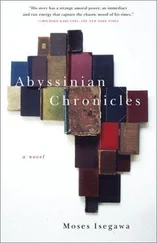On the fifth trip the soldiers had a surprise for them. At the hotel there were no bodies awaiting disposal. Instead, men were lined up, hands tied in front of them. Every prisoner was given somebody to dispose of. Bat tried not to look. He hesitated, waiting to see what others would do. He was viciously prodded with a rifle barrel. He lifted the hammer, said a prayer of absolution, and smashed. A clinical exercise robbed of either the thrill of anger or the satisfaction of malice. He remembered beheading, gutting and roasting chickens for the family when he was young. The jump from chicken to man, without progression between, seemed ridiculous. He had always wondered what butchers felt when they slit the throats of huge bulls. If they felt as empty as he did now, he pitied them.
At the river he thought of drowning himself and what a waste that would be. The soldiers would return to the hotel without him; his people wouldn’t know where his bones lay. He had almost stopped washing the blanket. At that moment the nastiest soldier with a face like the night rushed towards him.
“Hurry, hurry, hurry. You think you still big man, eh? You think because some white snake go making noise you are special? Tell me,” he barked, collaring and bringing him close to his face. He could see envy all over it.
At that moment Bat knew that he wasn’t abandoned. It struck him like an electric shock, short and sharp. Now he could handle this man. “No, sir. I am not a big man.”
“That is right. You nothing. You hear that? Nothing. You going nowhere.”
“Yes, sir,” he said, feeling so excited that he wanted to dance. A white man! Damon Villeneuve, MP? Had he stepped on a few corns? The moments of exuberance tasted delicious. The fact that a soldier knew about it meant that something was really happening. It was possible that this man had got wind of the affair a few weeks back and had been smouldering with resentment ever since. They had made him do these grisly things hoping that he would refuse and they would get a chance to injure him badly or to kill him. They were mistaken; he was going to play their game. The chance would come for him to hurt them later.
“First kill make you no special, you pussies. Be very careful. I catch you little mistake, I kill you.”
“Yes, sir.”
“Wash, wash, wash,” he ordered, pushing him away.
DAMON VILLENEUVE, MP, met with reluctance and indifference from the very start. The members of the English Parliament he usually cut deals with were busy with more momentous international issues. They had had enough of Idi Amin’s capers. It was quite entertaining to hear or read about them but dreary business to try and unravel them. Politicians were interested in the aftermath of the Vietnam War, the oil crisis, the Watergate scandal, terrorist attacks, hijackers, unemployment and riots in Britain, the nuclear threat from the East, the ramifications of the Cold War for the West. The disappearance of a small civil servant in an obscure country was far from top priority. There was no political percentage in it, domestic or foreign. Dictators like Amin had been largely left alone as long as they did not fall into the Cold War territory and the fight against Communism. They could do whatever they wanted as long as it was not to key British subjects. Nobody expected Britain to play world policeman. The empire was gone. When there had been incidents of British involvement, the outcome had been very mixed indeed. There was that Bossmans affair, Villeneuve was reminded more than once by colleagues who were knowledgeable about Uganda. Trouble in Uganda was not worth anybody’s attention. In consolation, a few colleagues promised to sign a letter if he wanted to write to the British and the Ugandan Embassies, maybe Idi Amin too. Villeneuve consulted Ugandan exiles and British expatriates, who advised him to play it low-key, but he started making phone calls, writing letters.
The news slowly seeped into Uganda. The British Embassy was reluctant to take up the case. There were heaps of similar cases involving more distinguished Ugandans lying unsolved. What was so special about this one? Villeneuve was insistent. A Member of Parliament usually got his way; the news finally reached the right ears. Amin asked Colonel Robert Ashes to look into the affair.
At the time Ashes was busy putting together another megadeal with Copper Motors. Big Bossman had been replaced by a more sensible fellow, and big bucks were in the making. The last thing Ashes wanted was interference from back home. He felt he had suffered enough over the Bossmans affair, explaining himself to embassy people he despised, people who had threatened to bring in Scotland Yard to investigate the disappearances and claims of fraud. Nothing came of the threats, but now he wanted nothing to do with the embassy. Besides, people were disappearing every day. Over trivial things like offending the wrong person, land disputes, women, grudges, politics, business. Why should he get involved in this case?
When Ashes discovered that the missing man used to hold a key post in the Ministry of Power, a jolt of excitement cut through him. Here was a golden chance to deal General Fart a blow. He had threatened to investigate the bastard but had let him off the hook. Not this time.
Colonel Robert Ashes called and promised to look into the matter with immediate effect. His first course of action was to send his men, the Acolytes, to the headquarters of the Ministry of Power and arrest everyone in Bat’s department. In the early afternoon, without a warning, Stingers swooped onto the place. Men jumped out, guns drawn, dashed into the offices and came out with eight people, including Bureaucrat One.
By the time General Bazooka received the news, two hours later, the damage had already been done. It was unclear who had captured his men. Word was his office had been attacked by armed men in Military Police uniforms. Efforts to find who they were had so far failed. He dispatched emissaries, made frantic phone calls to all security agencies, to no avail. His first guess was that he had fallen out of favour with Marshal Amin. He had not seen the Marshal lately, and he wondered if somebody had betrayed him. Had some envious back-biting general accused him of treason? Plotting a coup? Corruption? Had some astrologer seen him in his dreams and accused him of political ambition? Where was the Unholy Spirit? Was he in the country or abroad? What he said nowadays the Marshal swallowed. General Bazooka’s hands started shaking. He lit a joint and puffed on it nervously.
In this unruly time, favours were gained and lost in the blink of an eye. At the start it had been exciting to find his way through the confusion; nowadays the game had become lethal as a mine field. General Bazooka felt his chest tightening. His wife could become a widow, his children orphans. In a fit of panic he called friendly officials hoping that at least one would tell him the truth before it was too late for damage control. Nobody seemed to have seen or heard anything. Are they lying to me just to keep their distance, or have I become too paranoid? But you cannot become paranoid enough these days; you cannot trust anybody for more than two minutes, he said to himself. Then one colleague suggested Ashes might be behind the mess.
“That dog again!” he swore, relief spreading in his body. It all smelled like Ashes. “I want to tear out his entrails with my bare hands.”
In his helicopter he flew to the desecrated office. Phones were ringing, unfinished work was strewn on desks, employees were moving about with no idea what to do next. He berated the guards and every person he came across. In a rage, he called Ashes’ office, but he was out and nobody knew when he would return. He called the Office of the President, now run by the Eunuchs, and heard that Ashes had been authorized to find the missing man.
Читать дальше











